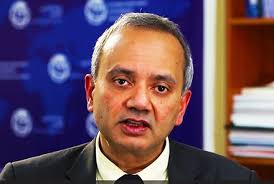….says N3trn revenue may be lost to fuel subsidy regime
The World Bank Group has projected that an additional one million Nigerians will be trapped in poverty by the end of this year, thereby bringing the total Nigerians pushed into poverty to about 96.1 million by the end of this year.
The Washington-DC-based institution had last March in its poverty assessment report titled ‘A Better Future for All Nigerians: 2022 Nigeria Poverty Assessment’ predicted that additional five million Nigerians would be pushed into poverty, thereby raising the number of poor people in the country to 95.1 million in 2022. The report attributed the projected five million rise in the nation’s poverty level to the COVID-19 crisis.
However, with the latest World Bank Nigeria Development Update (NDU) Report titled ‘The Continuing Urgency of Business Unusual’ and made public on Tuesday through a virtual meeting, it is estimated that the figures may rise to about 97.1 million by the year end.
The Breton Woods multilateral finance institution also predicted that the country may lose N3 trillion in oil revenue to the fuel subsidy regime in the fiscal year.
Noting that Nigeria is in a paradoxical situation, the World Bank experts report that while growth prospects have improved compared to six months ago, the nation’s inflationary and fiscal pressures have increased considerably, leaving the economy much more vulnerable
The report indicated that the nation’s inflation which is one of the highest in the world before the war in Ukraine, would likely increase further as a result of the rise in global fuel and food prices caused by the war.
Based on increasingly worrisome rising price level in the economy, the World Bank estimates that an additional one million Nigerians would be pushed into poverty by the end of 2022, on top of the six million Nigerians that were already predicted to fall into poverty this year because of the rise in prices, particularly food prices.
This latest edition of the NDU highlights that the inflationary pressures will be compounded by the fiscal pressures Nigeria will face this year because of the ballooning cost of gasoline subsidies at a time when oil production continues to decline. Hence, Nigeria, for the first time since its return to democracy, and alone amongst major oil exporters, is unlikely to benefit fiscally from the windfall opportunity created by higher global oil prices.
Commenting on the report’s findings, World Bank Country Director for Nigeria, Shubham Chaudhuri, said: “When we launched our previous Nigeria Development Update in November 2021, we estimated that Nigeria could stand to lose more than 3 trillion Naira in revenues in 2022 because the proceeds from crude oil sales, instead of going to the federation account, would be used to cover the rising cost of gasoline subsidies that mostly benefit the rich. Sadly, that projection turned out to be optimistic.
“With oil prices going up significantly, and with it, the price of imported gasoline, we now estimate that the foregone revenues as a result of gasoline subsidies will be closer to 5 trillion Naira in 2022. And that 5 trillion is urgently needed to cushion ordinary Nigerians from the crushing effect of double-digit increases in the cost of basic commodities, to invest in Nigeria’s children and youth, and in the infrastructure needed for private businesses small and large to flourish, grow and create jobs”, Chaudhuri added.
According to the report, Nigeria’s growing macroeconomic challenges in 2022 highlight the continuing urgency of a departure from business as usual, and the need for consensus around a package of robust reforms.
The Report highlights three policy priorities, namely reducing inflation through a sequenced and coordinated mix of exchange rate, trade, monetary, and fiscal policies including the adoption of a single, market-responsive exchange rate; addressing mounting fiscal pressures at the federal and sub-national levels by phasing out the petrol subsidy (estimated to cost up to 5 trillion naira in 2022) and redirecting fiscal resources to investments in infrastructure, education, and health services; increasing “pro-health taxes”, and improving tax compliance; and (3) catalyzing private investment to boost job creation by improving the transparency of key government-to-business services and eliminating trade restrictions.
In his remarks on the report, World Bank Lead Economist for Nigeria and co-author of the report, Marco Hernandez, said: “Despite the better-than-expected performance of the services and agriculture sectors and higher oil prices stemming from the war in Ukraine, Nigeria is experiencing a curious case of lower fiscal revenues. This is limiting the government’s ability to expand basic services, support the economic recovery, and protect the poor during this difficult time.”
Apart from assessing Nigeria’s economic situation, the latest edition of the NDU also casts a spotlight on the unintended effects of Nigeria’s trade restrictions; the importance of investing in adolescent girls to defuse Nigeria’s demographic time bomb; and the imperative of bringing Nigeria’s out-of-school children back to school.






